FTT: Mental Inflammation
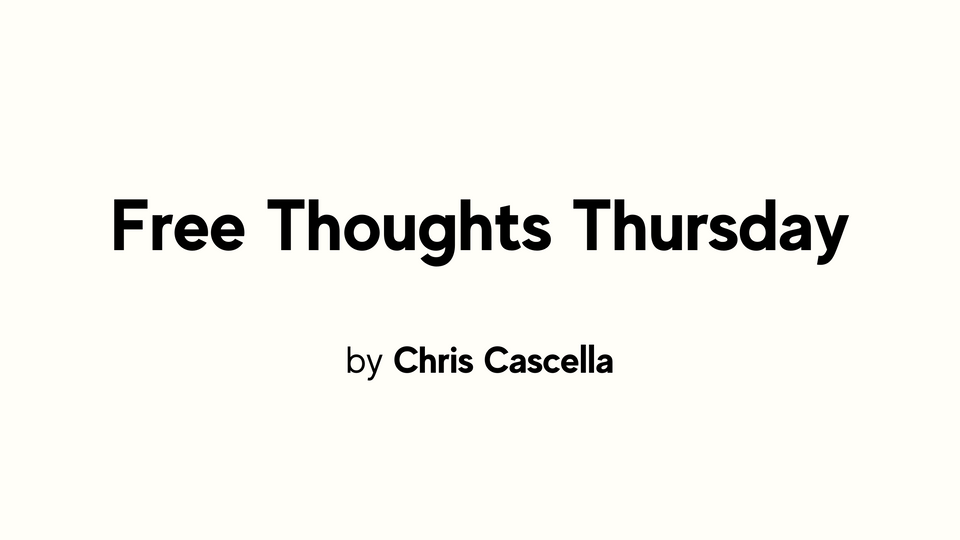
Happy Free Thoughts Thursday, people.
Another life hack for you courtesy of a friend of mine: set a time limit on your social media apps.
Settings > Screen Time > App Limits.
I have mine set to limit Social Media to 30 mins a day every day.
Do I follow that religiously? No. But it definitely helps.
1 Thought From Me:
Ice cream is fucking delicious.
Show me a gallon of Black Raspberry Chip from Graeter's (local ice cream shop near me) and I'll show you the bottom of the carton.
After the first few bites I know I should stop. And if I wanted to I could stop.
But it just tastes so good. So I don't stop. I eat the whole thing.
And then—after consuming spoonful after spoonful of pure heaven and enjoying minutes of unadulterated bliss—I run to the toilet.
Unfortunately, ice cream doesn't sit well with me. It upsets my stomach and, worse, it gives me horrible acne.
The upset stomach I can take. A small price to pay for an indulgence of such magnitude.
It's the acne that causes problems. It lingers for days, sometimes weeks. It's with me everywhere I go. It impacts my mood and my interactions with other people.
In short, it makes things worse.
Ice cream upsets my stomach because it contains dairy, but it gives me acne because it contains sugar which causes inflammation to which the body is highly sensitive.
I'm experiencing an ice cream-related break out right now and it's made me think about the impact that the food I eat has on my physical health, especially when it comes to inflammation because it causes so many harmful side effects.
But because of the ongoing conversation about taking care of our mental health as much as our physical health it's also made me think about what the ice cream-to-acne equivalent might be when it comes to my mind.
Media-to-fear?
Netflix-to-boredom?
Instagram-to-loneliness?
Or does it go beyond individual platforms?
I looked around for answers until I found someone named Balaji Srinivasan who shared an idea that immediately clicked with me:
Just as unhealthy food is inflammatory to your body, unhealthy information is inflammatory to your mind.
And just like food companies add sugar to their products to encourage you to eat more, media companies add "sugar" to their stories to encourage you to engage more.
But what's the "sugar" that media companies add to their stories?
That's simple: Outrage.
The process is the same: companies add an unhealthy ingredient that makes a product more consumable.
The outcome is also the same: we consume the product and suffer the consequences of the unhealthy ingredient.
Sugar and outrage both make products more consumable and they're both unhealthy in large doses.
But why do media companies use outrage specifically? Why not, for example, humor?
"The term 'outrage media' refers to any media designed to evoke a strong backlash, particularly for the sake of getting online traffic. Anger is an emotion that drives a person to act, and for most of today’s [users], that consists of leaving an angry comment or sharing a post," says Brook Zimmatore.
"Interacting with a media story through clicks, posts, retweets, or shares happens to be among the most lucrative behaviors for media outlets, which receive ad revenue [based on user engagement].
The result is a never-ending arms race to come up with the most salacious, outrageous, and anger-inducing story, and if a story isn’t really that controversial, don’t worry—the media will make it so...all for the sake of some clicks (and ad dollars)."
Zimmatore's stance is backed up by a study at Yale University led by William Brady which found that, as Brady puts it, "people learn to express more outrage over time because they are rewarded by the basic design of social media."
They use outrage because it's the ingredient most likely to get us to engage. Anger decreases cognition and increases action.
So not only are media companies incentivized to frame their stories in an outrageous way, but we are also encouraged to act on the outrage we feel in response to those stories. And the cycle goes on.
But what's the ice cream-to-acne equivalent when it comes to our mind?
I'd argue it's media-to-indignation and outrage is the inflammatory ingredient keeping us along for the ride.
And that's not even the worst part.
Just like sugar in ice cream, the outrage media uses to keep us engaged with their stories only lasts for so long.
So in order to keep us hooked they have to continually shift their focus from one story to the next and use increasingly outrageous language to elicit the same level of response from their audience.
If that sounds extreme to you, take a look below.
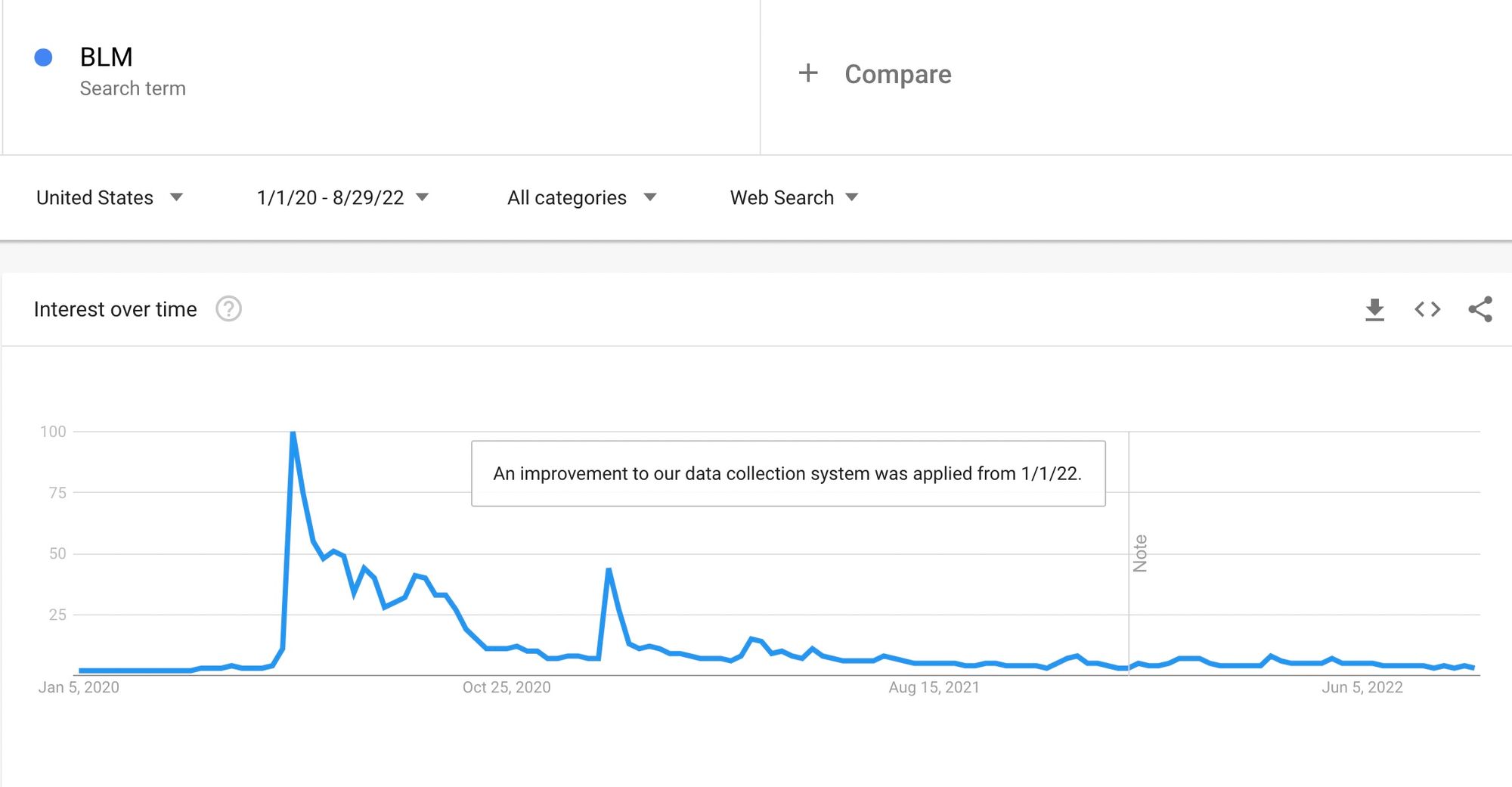
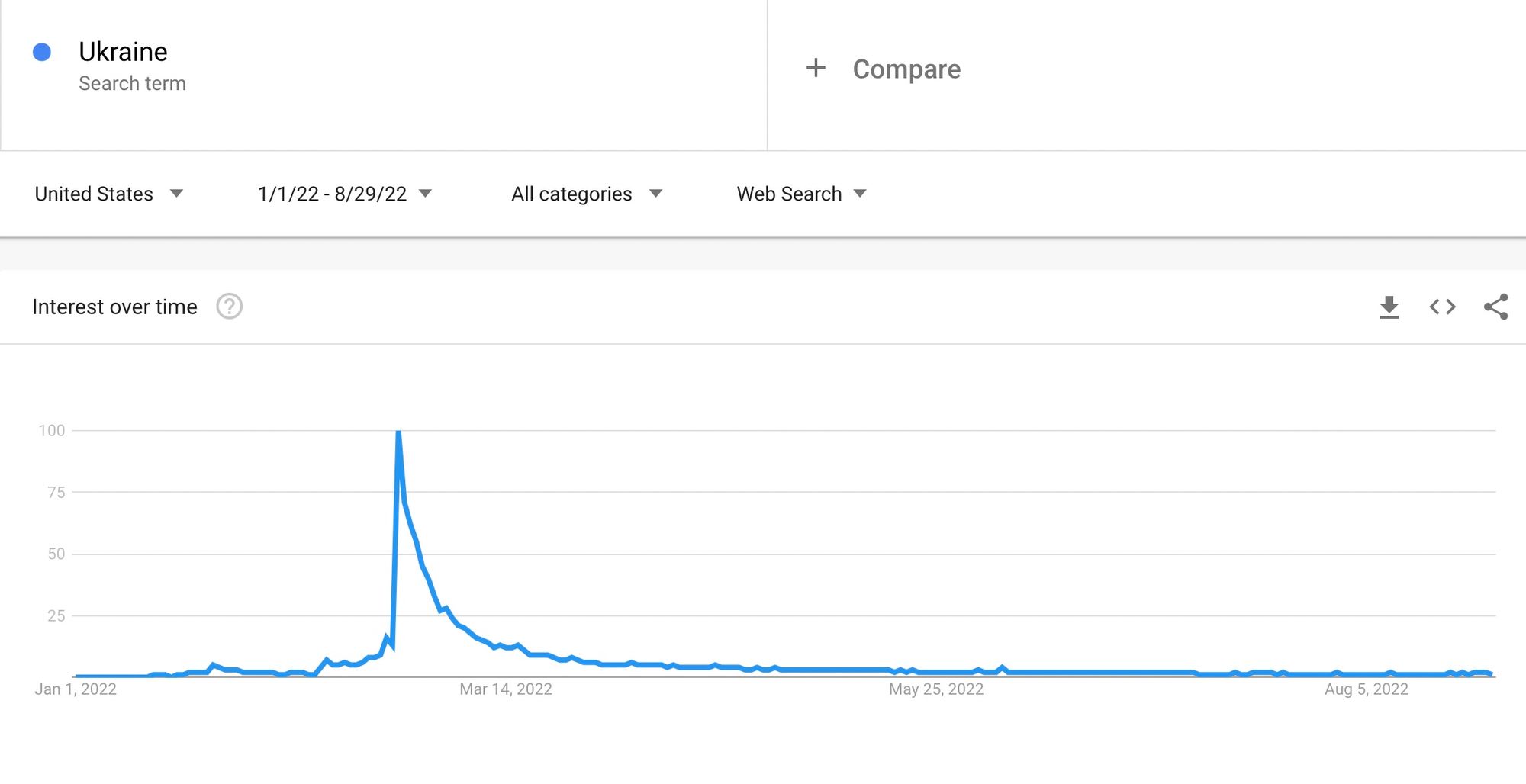
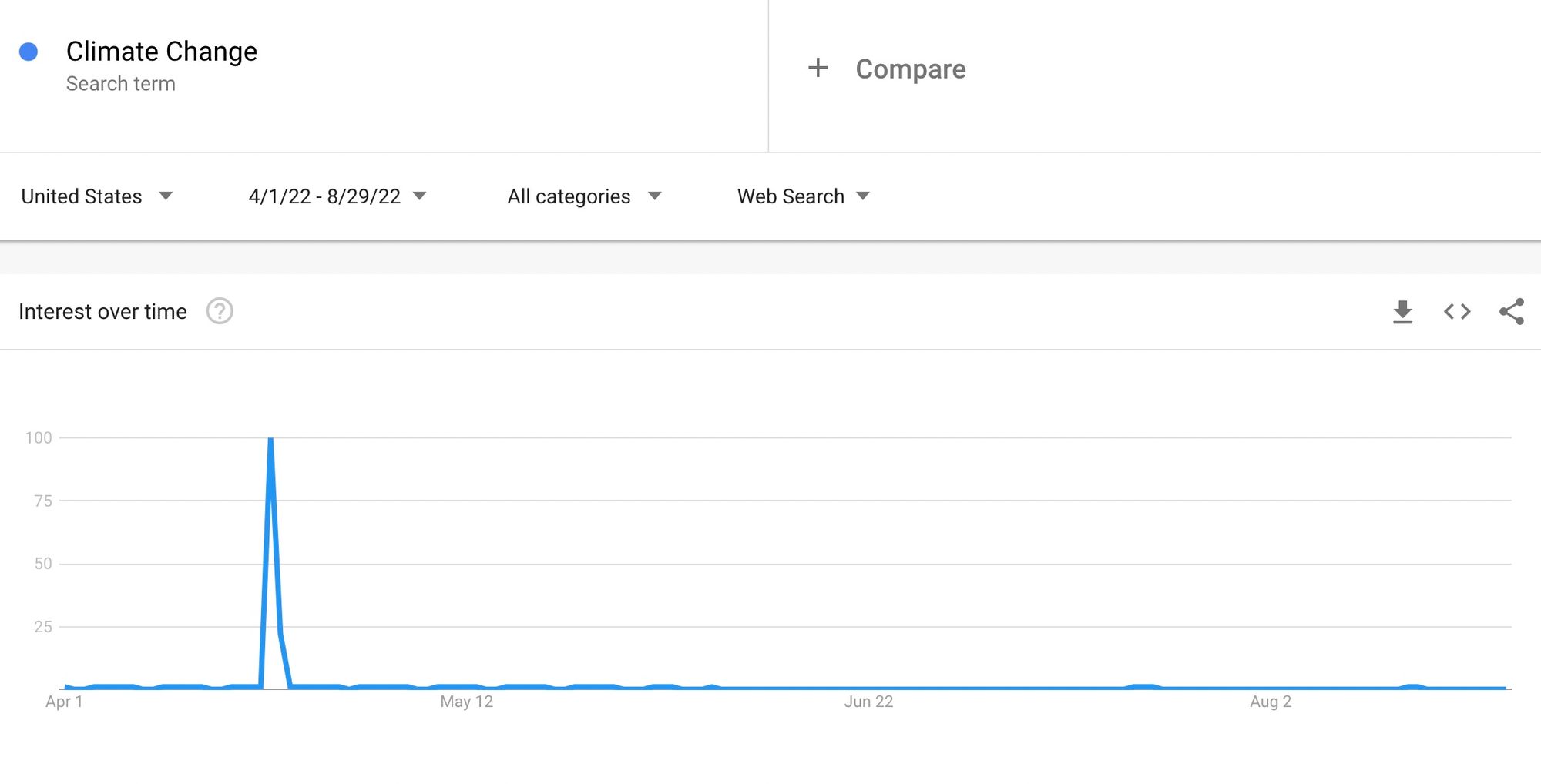
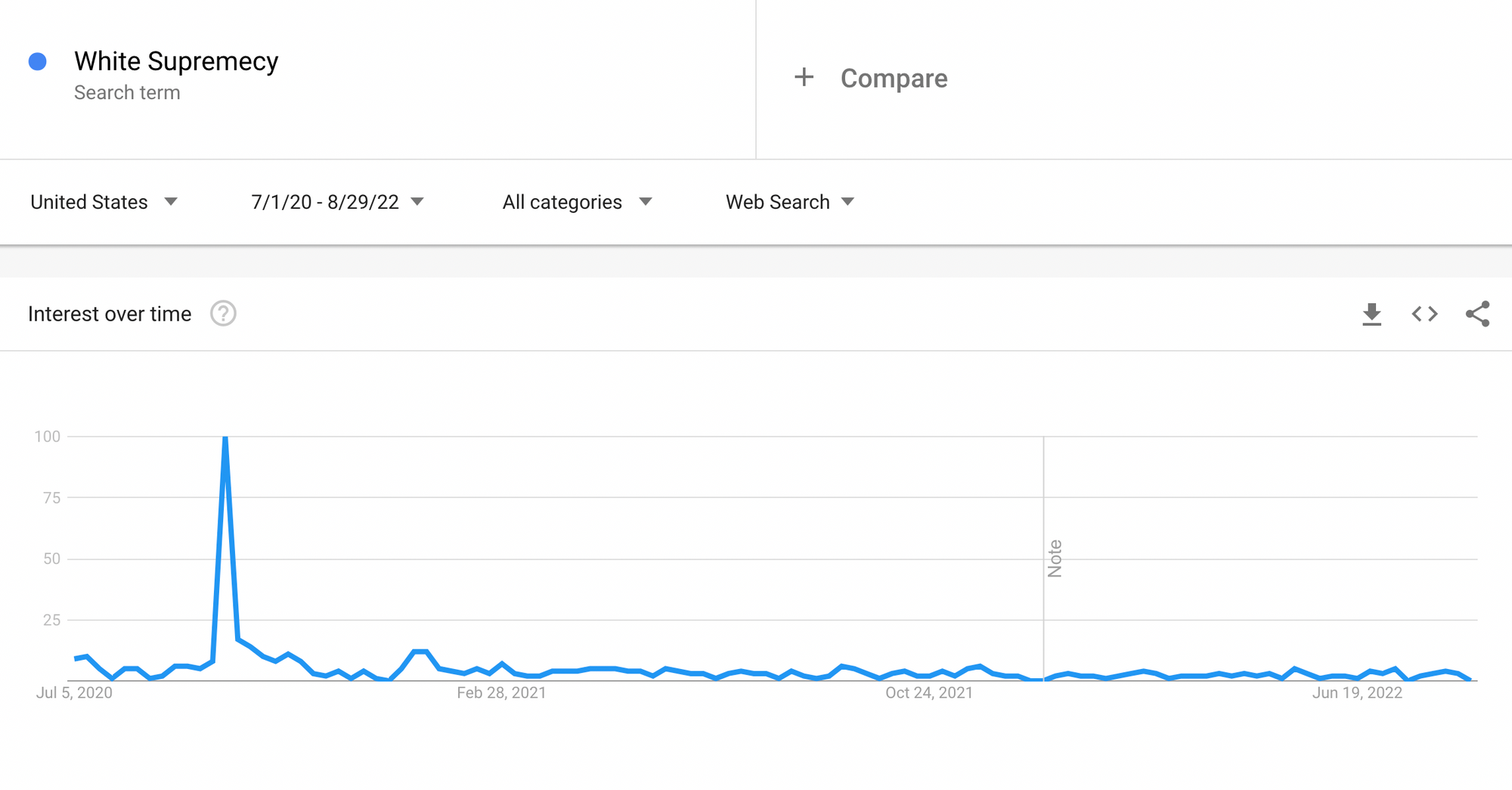
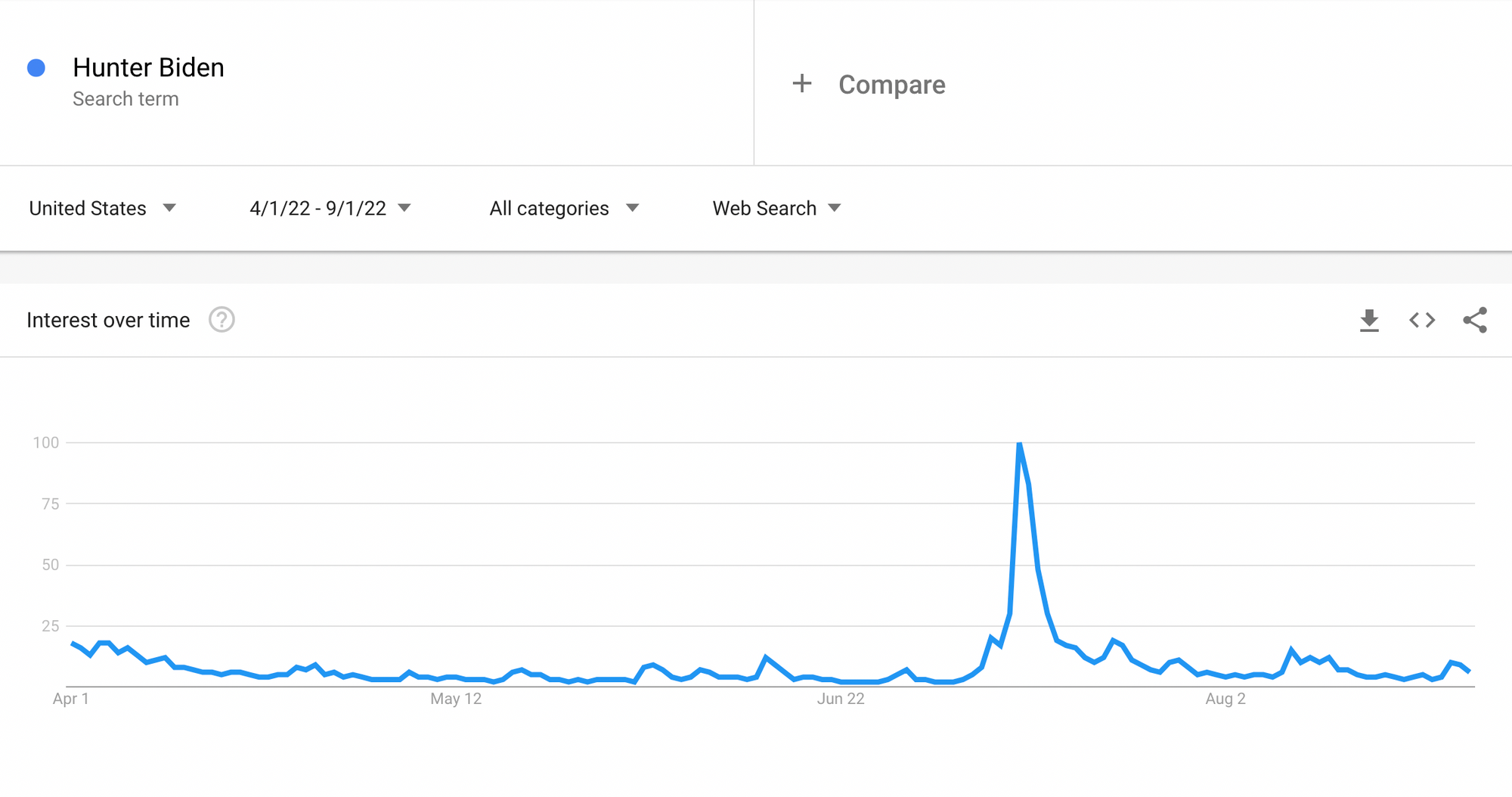
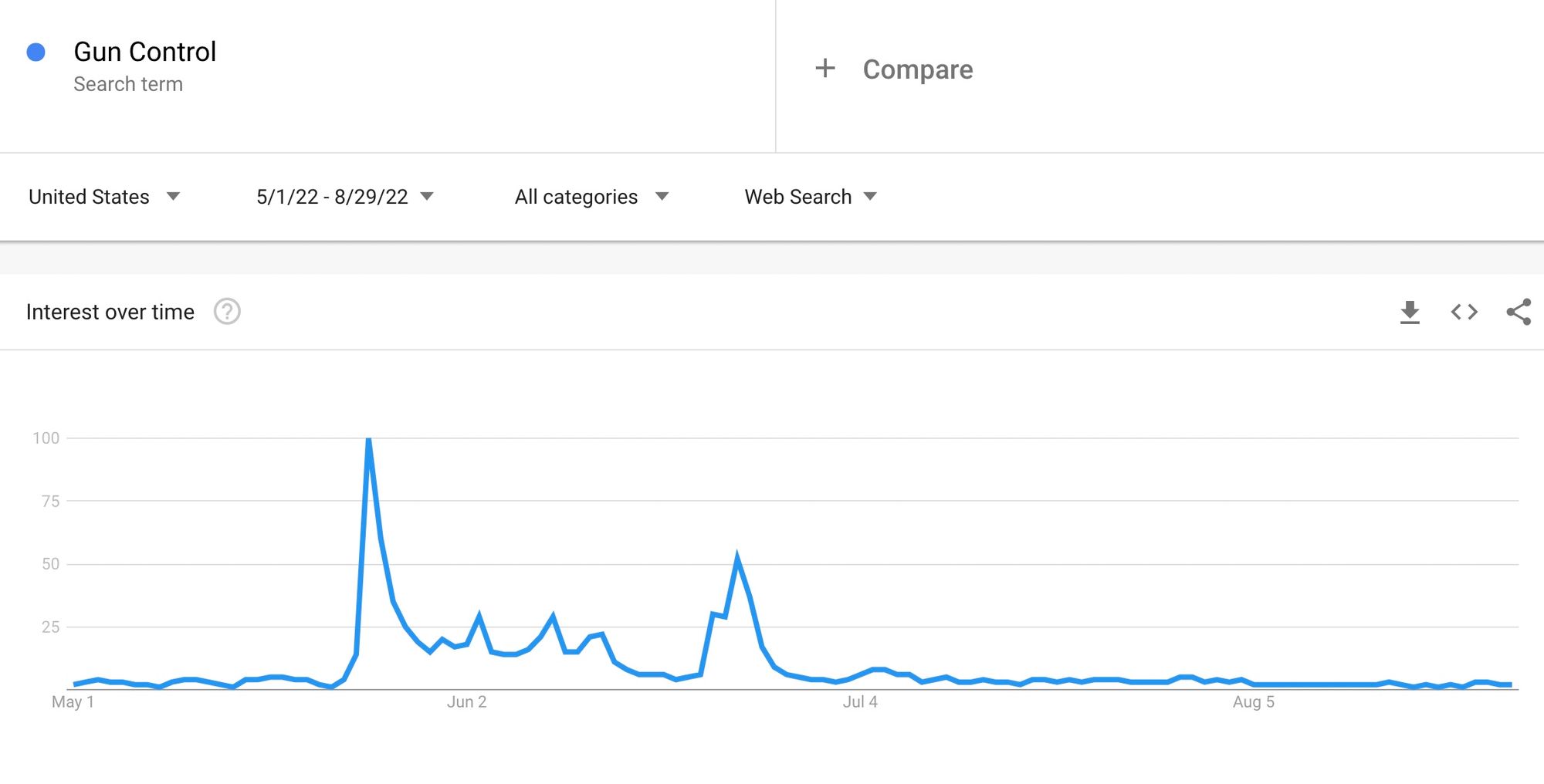
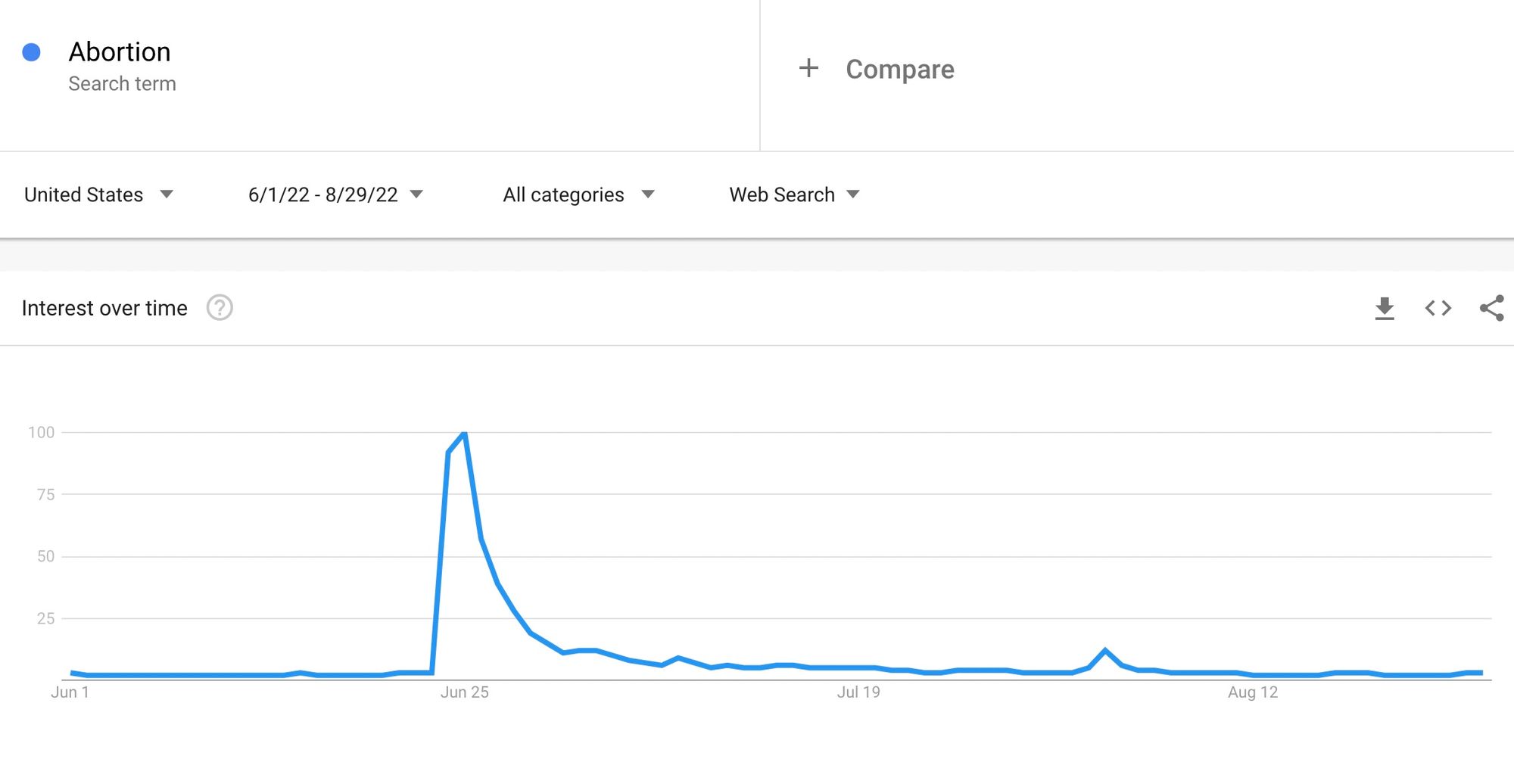
These spikes in searches after "breaking news" stories look quite similar to spikes of dopamine in our brains after eating sweets.
All of the issues above are important and the initial peaks are much less interesting than the subsequent drop-offs.
The media portrays each story as if it's the most important, and sometimes the only thing that matters in the world.
They make outrageous claims on both sides to anger their viewers and increase engagement and they milk the story for everything it's worth, collecting every last penny they can from their ads.
And then they move on. And so do we.
It doesn't matter where you stand on the issues being discussed. Both sides find the most triggering angle and they hammer it 24/7... until the next Most Important Thing in the World comes up.
Just like food companies want us to eat their products, taste the sugar, experience the dopamine and ultimately come back for more of their products in the future; the media wants us to see their stories, feel the outrage, experience the anger and ultimately come back for more of their stories in the future.
And that's not coming from some random commentator on Twitter—that's coming from a study conducted at Yale University.
The media is a business and their product is conflict.
Conflict = Attention.
Attention = Advertising.
Advertising = Profit.
So what are we to do?
I don't have a solution—this problem is way bigger than me.
But one thing we can do is monitor our mental diet just like we monitor our physical diet. Be aware of the information we're consuming every day and stay away from accounts and stations that constantly peddle anger and fear and controversy.
And if we can't avoid it we can at least understand that maybe not every story is as apocalyptic as the source relaying the story makes it seem.
We can recognize there's a good chance that source is being driven by something other than its audience's best interest.
If we can do that then we can better avoid outrage in our mental diet.
And as a result we can minimize inflammation and start to live a healthier life.
Online and offline.
Live your life to the fullest,
Chris
P.S. Find this interesting it? Please share it with others!
Watch my videos on YouTube